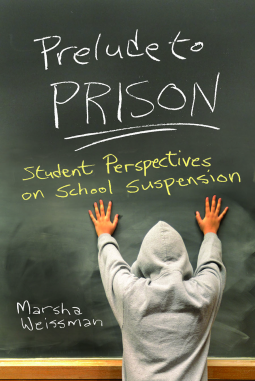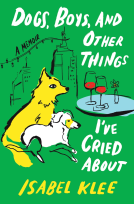Please wait... This may take a moment.
Prelude to Prison: Student Perspectives on School Suspension
This title was previously available on NetGalley and is now archived.
Pub Date
Dec 17 2014
| Archive Date
Dec 21 2014
Description
By the close of the twentieth century, the United States became known for its
reliance on incarceration as the chief means of social control, particularly
in poor communities of color. The carceral state has been extended into the
public school system in these communities in what has become known as the
"school-to-prison pipeline." Through interviews with young people suspended
from school, Weissman examines the impact of zero tolerance and other harsh
disciplinary approaches that have transformed schools into penal-like institutions.
In their own words, students describe their lives, the challenges they face,
and their efforts to overcome those challenges. Unlike other studies, this book
illuminates the students’ perspectives on what happens when the educational
system excludes them from regular school.
By the close of the twentieth century, the United States became known for its reliance on incarceration as the chief means of social control, particularly in poor communities of color. The carceral...
Description
By the close of the twentieth century, the United States became known for its
reliance on incarceration as the chief means of social control, particularly
in poor communities of color. The carceral state has been extended into the
public school system in these communities in what has become known as the
"school-to-prison pipeline." Through interviews with young people suspended
from school, Weissman examines the impact of zero tolerance and other harsh
disciplinary approaches that have transformed schools into penal-like institutions.
In their own words, students describe their lives, the challenges they face,
and their efforts to overcome those challenges. Unlike other studies, this book
illuminates the students’ perspectives on what happens when the educational
system excludes them from regular school.
A Note From the Publisher
Marsha Weissman is the founder and executive director of the Center for Community Alternatives. For more than thirty years, the center has worked to end mass incarceration through alternative-to-incarceration programs for youth and adults and research and policy advocacy to educate the public and policy makers regarding needs for a more effective juvenile and criminal justice system.
6 x 9, 288 pages, notes, bibliography, index
Marsha Weissman is the founder and executive director of the Center for Community Alternatives. For more than thirty years, the center has worked to end mass incarceration through...
A Note From the Publisher
Marsha Weissman is the founder and executive director of the Center for Community Alternatives. For more than thirty years, the center has worked to end mass incarceration through alternative-to-incarceration programs for youth and adults and research and policy advocacy to educate the public and policy makers regarding needs for a more effective juvenile and criminal justice system.
6 x 9, 288 pages, notes, bibliography, index
Advance Praise
"Weissman addresses a set of twinned issues
that are critical for our understanding of urban
education, criminal justice and youth development
through a lens of racial injustice: the
school to prison pipeline, and growing surveillance/
securitization within public schools. She
offers a compelling analysis of these dynamics
through the voices and from the perspectives
of young people who know, and have seen
too much."—Michelle Fine, Distinguished Professor of psychology
and urban education, The Graduate Center, CUNY
"Weissman interweaves her own background, experiences, and insights
drawn from her work as a community organizer and advocate
for prisoners and youth to cover the extremely important topic of the
school-to-prison pipeline, in one of the first books (if not the first) to
include and thoroughly incorporate the voices of youth who are directly
impacted by the trend."—Tamar Birckhead, University of North Carolina at Chapel Hill School of Law
"Weissman addresses a set of twinned issues that are critical for our understanding of urban education, criminal justice and youth development through a lens of racial injustice: the school to...
Advance Praise
"Weissman addresses a set of twinned issues
that are critical for our understanding of urban
education, criminal justice and youth development
through a lens of racial injustice: the
school to prison pipeline, and growing surveillance/
securitization within public schools. She
offers a compelling analysis of these dynamics
through the voices and from the perspectives
of young people who know, and have seen
too much."—Michelle Fine, Distinguished Professor of psychology
and urban education, The Graduate Center, CUNY
"Weissman interweaves her own background, experiences, and insights
drawn from her work as a community organizer and advocate
for prisoners and youth to cover the extremely important topic of the
school-to-prison pipeline, in one of the first books (if not the first) to
include and thoroughly incorporate the voices of youth who are directly
impacted by the trend."—Tamar Birckhead, University of North Carolina at Chapel Hill School of Law
Marketing Plan
No Marketing Info Available
No Marketing Info Available
Available Editions
| EDITION |
Hardcover |
| ISBN |
9780815633761 |
| PRICE |
$44.95 (USD)
|
Additional Information
Available Editions
| EDITION |
Hardcover |
| ISBN |
9780815633761 |
| PRICE |
$44.95 (USD)
|
Average rating from 13 members
Readers who liked this book also liked:










